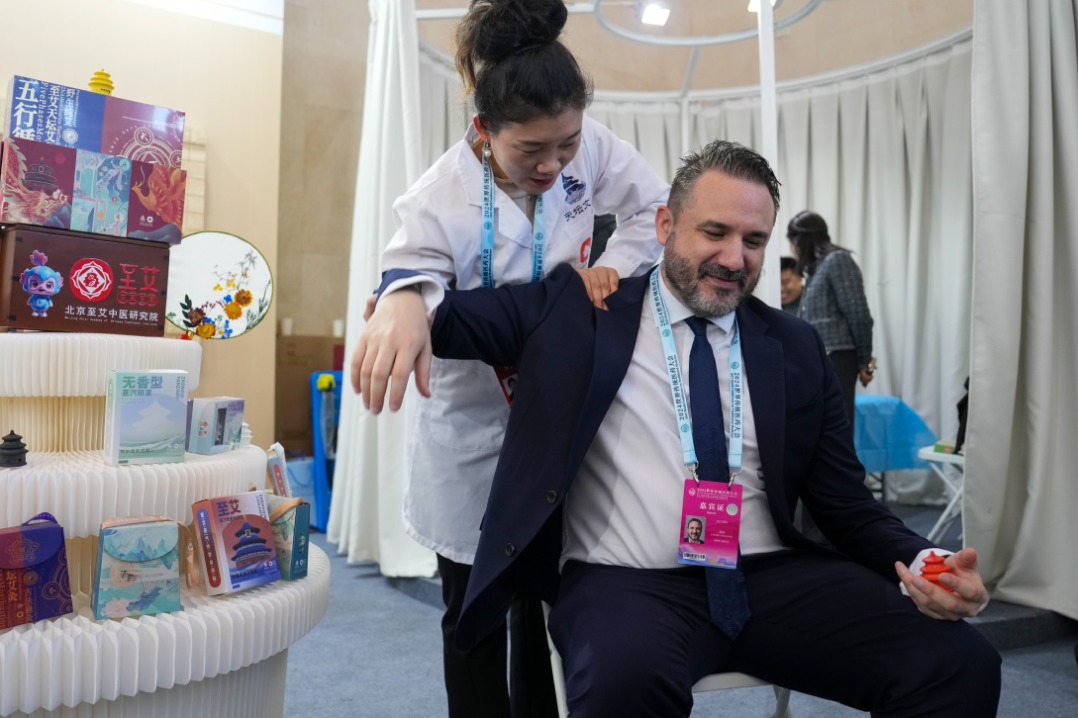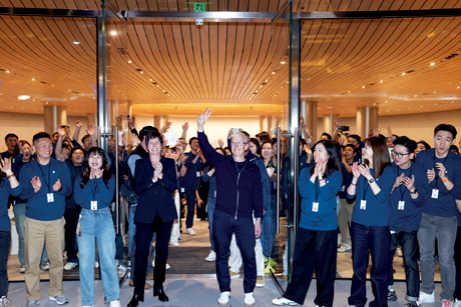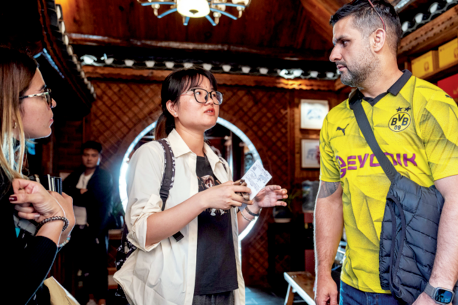Haleon increasing investment in its China JV for supply chain edge


Haleon Plc, a British multinational consumer healthcare group, plans to complete the acquisition of all equity interest in Tianjin TSKF Pharmaceutical Co Ltd, its joint venture in China, from its local partners next year, said its top executive.
The move aims to further reinforce its supply chain operations and innovation capabilities in China, enhancing the company's ability to meet the growing demand for consumer healthcare products in the country, said Brian McNamara, CEO of Haleon.
The Weybridge, United Kingdom-headquartered group announced in late September that it plans to raise its stake in Tianjin TSKF from 55 percent to 88 percent through an investment of 4.47 billion yuan ($615 million).
This marks Haleon's largest single investment in China to date, aimed at transforming the pure manufacturing facility into a comprehensive operational hub in northern China, as well as upgrading and modernizing its supply chain system within the country.
Emphasizing that China is a must-have and not a nice-to-have market, McNamara highlighted that the majority of the company's efforts in China are dedicated to serving the local market. However, from a research and development standpoint, the work carried out in China has a far-reaching global influence.
Innovations and capabilities developed in China can often extend to other countries, positioning China not only as a critical market for local success but also as a strategic hub for driving growth and competitiveness in international markets, he added.
Haleon's product portfolio spans five major categories — oral health, pain relief, respiratory health, digestive health, and vitamins, minerals and supplements. It owns brands such as Centrum, a multivitamin brand, and Sensodyne, a toothpaste brand for sensitive teeth.
Eager to seize more market share, the company put a new China innovation center in Shanghai into operation in 2023.
In addition to launching a gum health brand named Paradontax in China earlier this year, McNamara said the company — supported by 3,500 employees across the country — will focus on innovations like daily essentials to offer consumers the right number of vitamins for any given day, for the essential nutrients they need.
"We will continue to prioritize categories of over-the-counter, vitamins, minerals, supplements and oral health in China," he said, adding that about 85 percent of the products Haleon sells in the country are manufactured in its plants in Tianjin and Suzhou, Jiangsu province.
Noting China's recent policy measures to remove all market access restrictions for foreign investors in the manufacturing sector, McNamara said this initiative is expected to encourage foreign companies to boost their investments in China, particularly in high-end manufacturing and innovation.
The latest edition of China's national "negative list" for foreign investment, which took effect on Nov 1, removed the last two manufacturing-related restrictions, according to the National Development and Reform Commission, the country's top economic regulator.
The items on the latest "negative list", which specifies fields that are off-limits to foreign investors, have been further reduced to 29.
"We remain highly optimistic about the growth potential of China — our second-largest market globally after the United States," said McNamara. "Our performance in the country has been strong, with consistent growth over the past 50 months, during which we have steadily increased our market share."
He said that under the Healthy China 2030 initiative, the focus on public health is transitioning from being "disease-centered" to "health-centered" and this will create new opportunities for the growth of the consumer health industry.
The Healthy China 2030 blueprint was unveiled in 2016 to achieve health targets aligned with the United Nations' sustainable development goals.
Driven by an improved policy environment, rising socio-economic levels, growing public awareness of health, an expanding aging population, and the evolving consumption habits of younger generations, the consumer health market's potential will be further unleashed in China, said Guan Lixin, a researcher specializing in marketing at the Chinese Academy of International Trade and Economic Cooperation in Beijing.




































